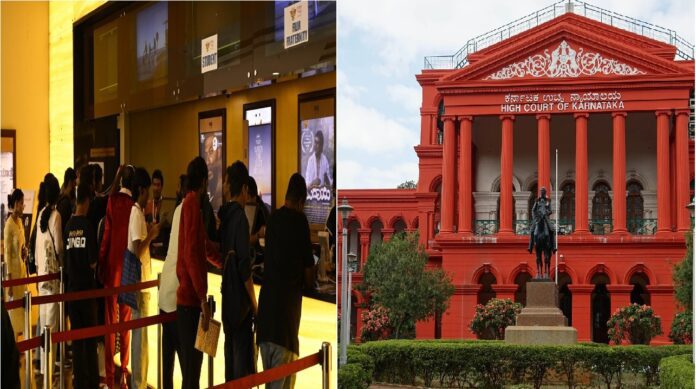The Karnataka High Court has stayed the Karnataka government’s decision to cap movie ticket prices at ₹200, following a petition filed by several organisations, including the Film Association.
The Karnataka High Court has stayed the Karnataka government’s decision to limit movie ticket prices to a maximum of ₹200. Justice Ravi V. Hosamani issued an interim order, granting relief to multiplex owners. The Multiplex Association had filed a petition challenging the Karnataka Cinema Regulation Rules 2025, which stated that movie ticket prices could not be increased beyond ₹200.
Film producers, the Multiplexes Association of India, and shareholders of PVR Inox filed a joint appeal in the High Court. The petition argued that capping ticket prices across all theaters would cause losses. The petition argued that multiplexes offer more facilities than single-screen theaters, making screening a film there more expensive.
The petition stated that OTT platforms, satellite TV, and other entertainment platforms lack strict regulations, while such regulations are being imposed only on theaters. The association argued that these government regulations violate Article 19(1)(g) of the Constitution. The petitioners argued that multiplexes incur significant expenditure on technology, investment, and formats, and that making regulations without considering these is incorrect. The regulations exempted multi-screen premium cinemas with 75 seats or less, although this was not defined.
The state government stated that everyone has the right to entertainment and that this decision was taken in the public interest. Advocate Adya Holla, representing the association, argued that setting a cap of ₹200 was arbitrary. He argued that consumers still want to spend more to enjoy luxury cinema. Therefore, exhibitors should be allowed to set prices to ensure they provide luxury goods.
In court, the petitioners’ lawyer argued that a similar case existed in another state. The rules had to be changed after the court hearing. Another lawyer argued that the state government should not be involved in this matter. This is a matter between customers and theater owners.




